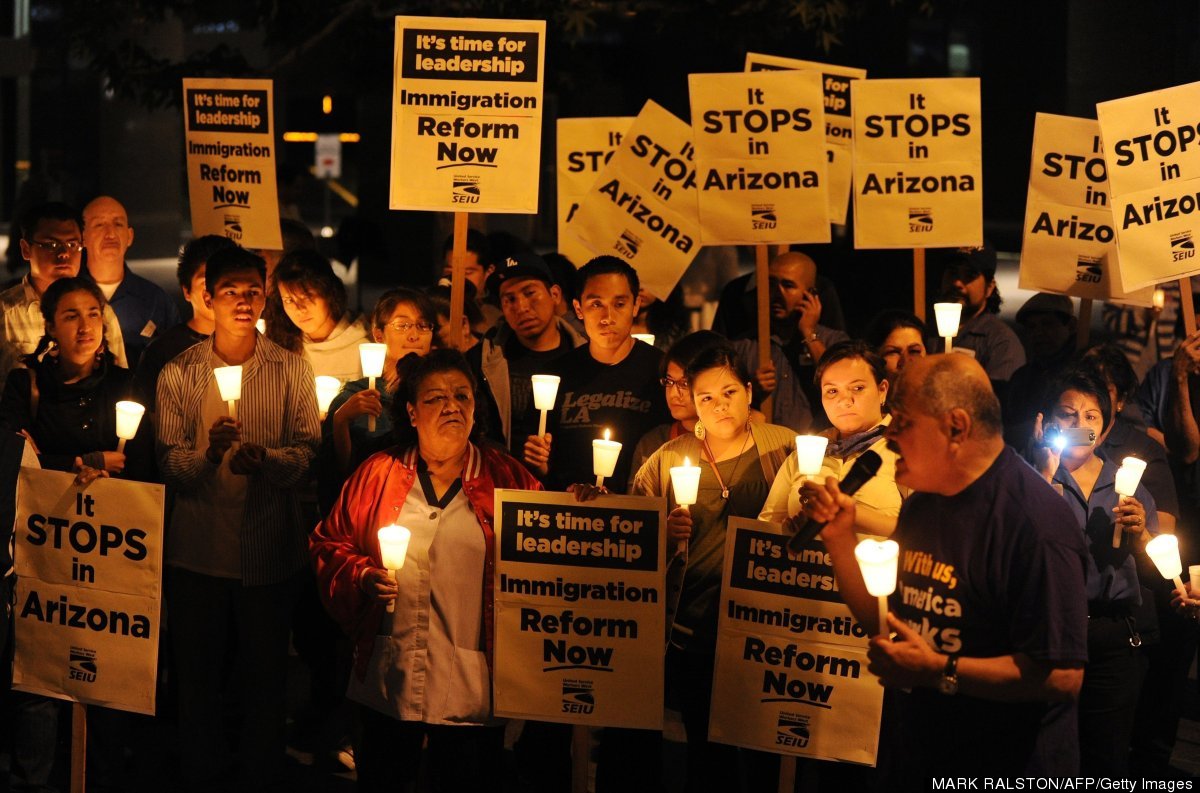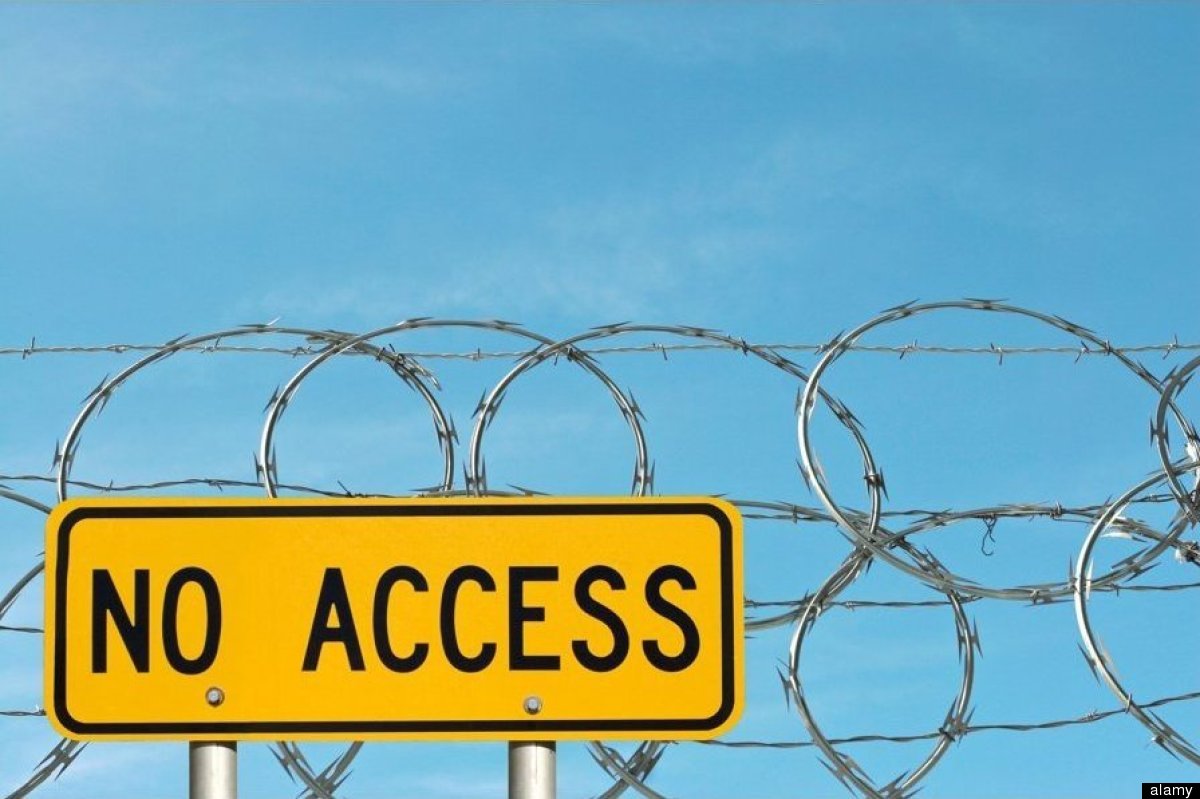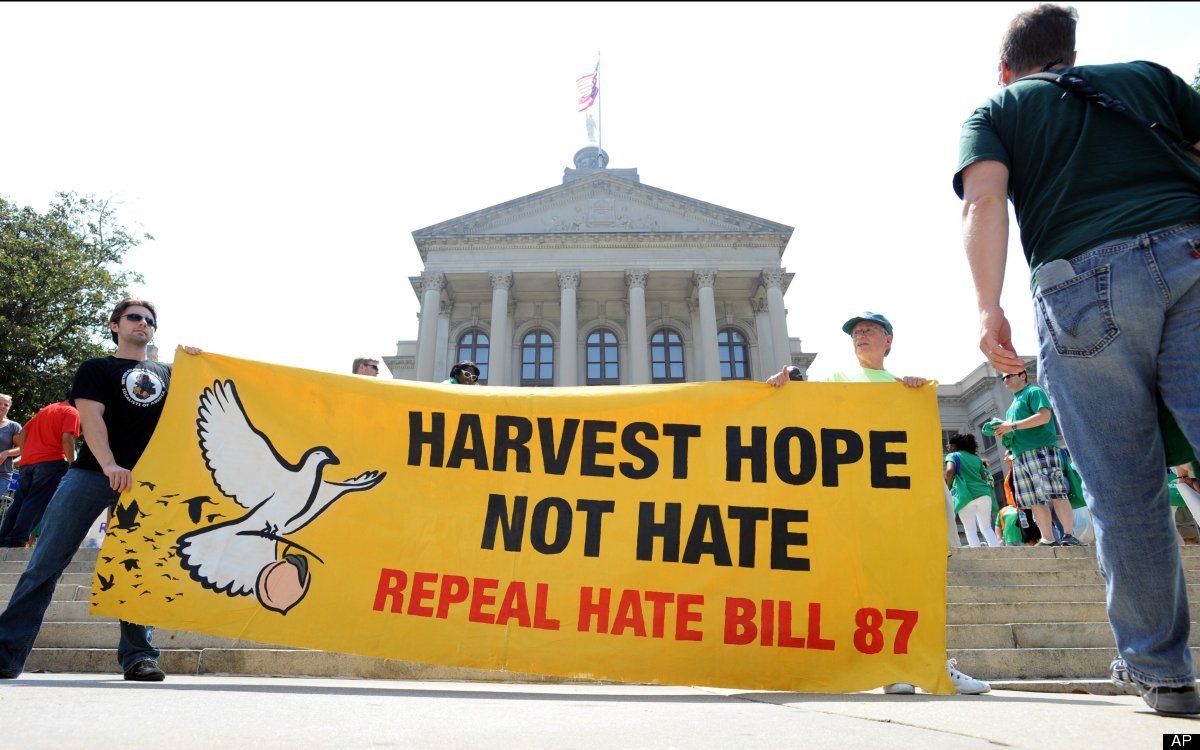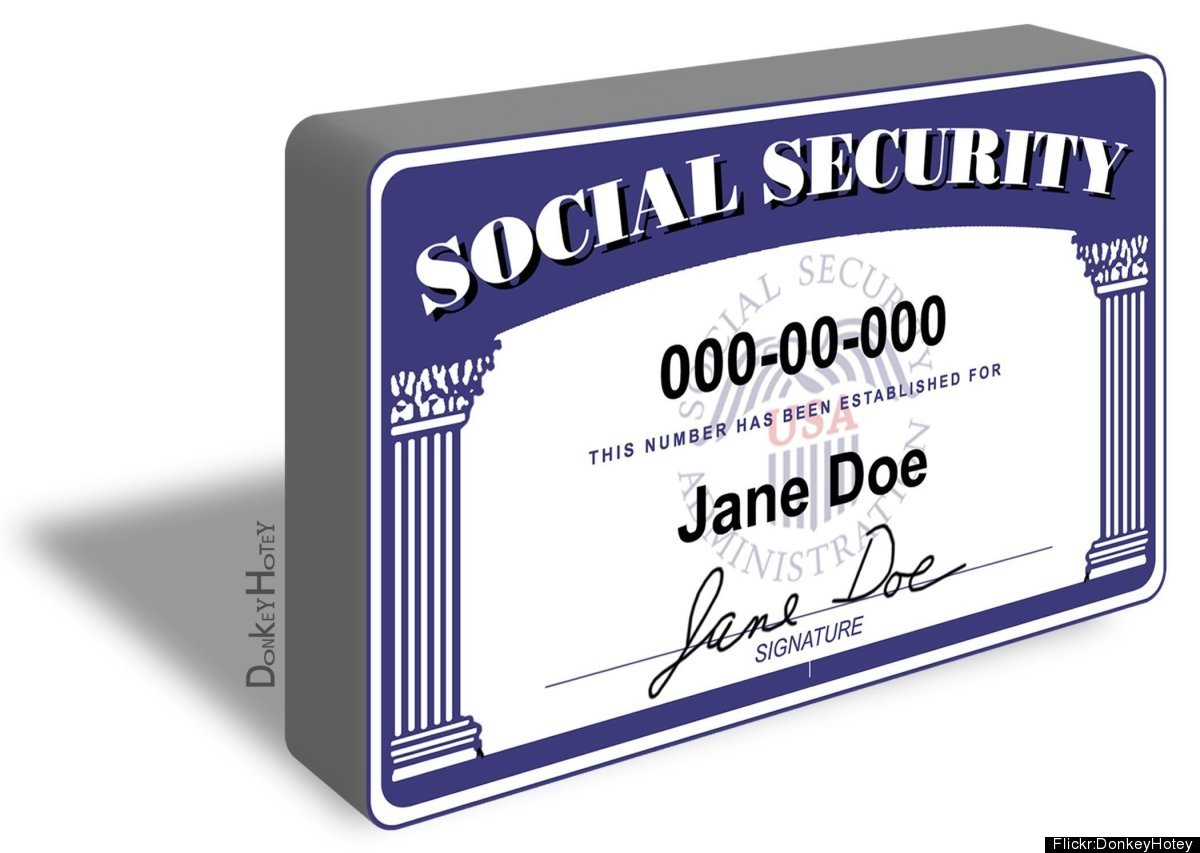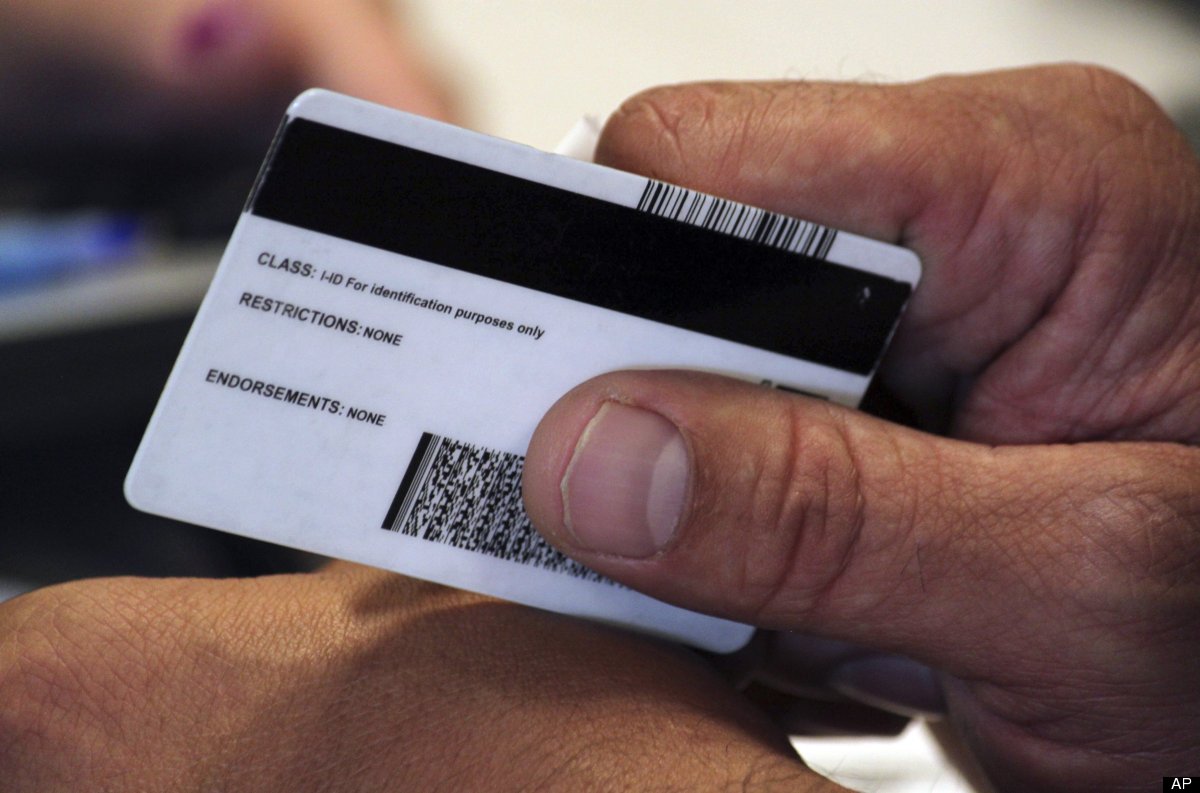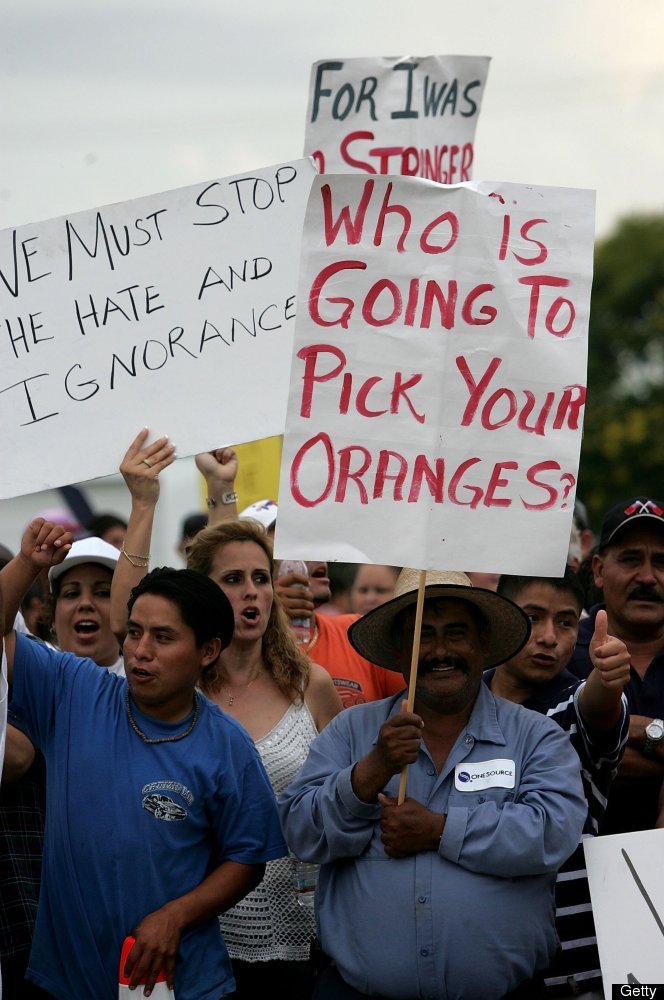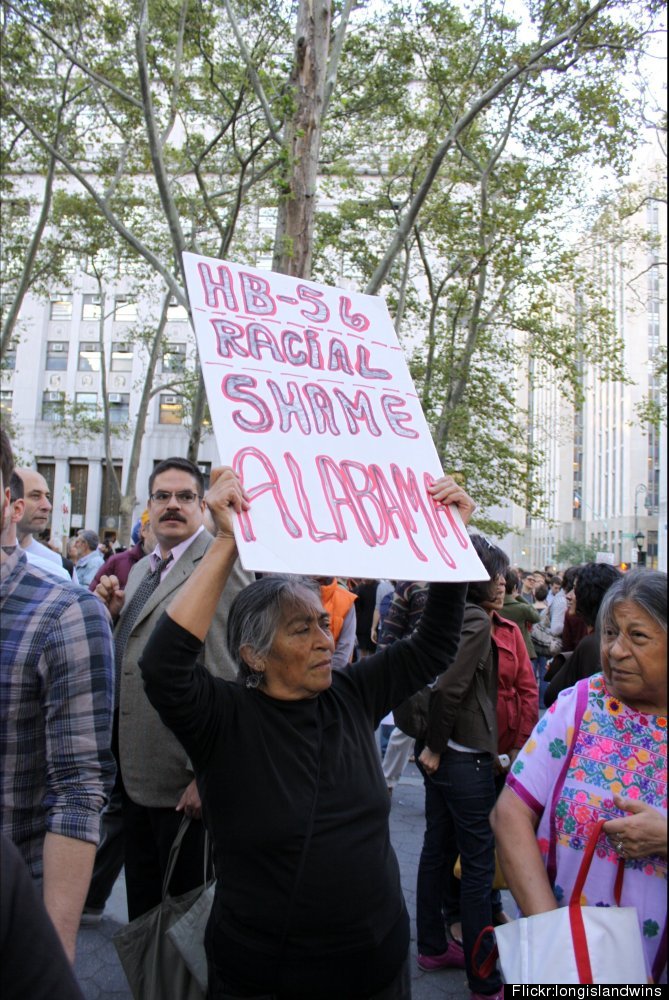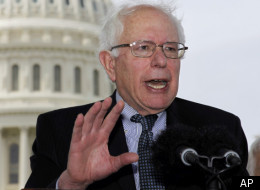FROM ISSUE NUMBER 11 ~ SPRING 2012
GO TO TABLE OF CONTENTS
When
political scientist Harold Lasswell, writing in the mid-1930s, defined
politics as the decisions society makes about "who gets what, when, and
how," he might as well have been describing the debate over taxes and
spending in the United States today. But what happens when the focus of
the political debate changes from who
gets what to who
loses what? This concept is unfamiliar to Americans, who have enjoyed more than 100 years of (mostly) uninterrupted economic growth.
The few examples in American history of the politics of loss suggest
that the results tend to be explosive. Writing in the aftermath of the
1968 presidential campaign, journalist Theodore White borrowed
Lasswell's concept to define the core philosophy of the New Deal
Democratic Party as the "share-out," by which he meant "that any
Democratic administration would increase or stretch the wealth so that
everyone would get his fair share of money, goods and comfort, and thus
be content." White observed:
[I]n pursuit of the philosophy of share-out, the Johnson
administration had come to consideration of the last group still
clamoring for its share — the unfortunate and underprivileged black
population of America. Here, however, was a cleavage line that the old
philosophy of share-out could not straddle; for what the blacks clamored
to share was not only money, jobs and material things but such
intangibles as dignity and equality. And the sharing that was demanded
in this quest was demanded not from the affluent so much as from white
workingmen, who were asked also to share their schools, neighborhoods
and places of amusement with the blacks. All through 1968 the
working-class base of the Democratic coalition was to be torn almost as
if by civil war, as white workingmen questioned the risk and the pace
imposed on them in the adventure. The philosophy of the share-out...was
to run its course in 1968.
White's concept of the share-out, and his observations about its
fragility, capture the essence of not only 1960s Democratic politics but
also the greater post-war political equilibrium. For generations after
World War II, both parties agreed implicitly upon a great American
share-out: The fantastic growth of the American economy gave politicians
in both parties the enviable task of deciding how the annual surplus
would be divided, meaning that
everybody could be a winner.
Republicans could cut taxes and dabble in generous social-welfare
benefits; Democrats could distribute generous social-welfare benefits
and dabble in tax cuts; both parties could push for an overpowering
military; and all the while the annual budget deficit stayed more or
less within a tolerable range. It was a true win-win, with political
disagreements largely fought over which side would win more.
Even as the balance of power in Washington shifted back and forth
after World War II, the share-out endured. And this durability helps
explain why the domestic policies of presidents from Dwight Eisenhower
to George W. Bush have often seemed interchangeable, regardless of
party. John Kennedy, Lyndon Johnson, and Bill Clinton all cut taxes;
Eisenhower, Richard Nixon, and Bush all expanded the social-welfare
state. The purists at the two ends of the ideological spectrum were
usually unhappy, but the broad middle of the country — where elections
are always won or lost — was pleased. Thus a political equilibrium was
reached and preserved, more or less, for 50 years.
In our time, however, this balance has been upset not only by the
severity of the most recent recession, but also by the weakness of the
recoveries that have followed the downturns of the past decade. Evidence
would suggest that the great American growth machine is sputtering,
with forecasts auguring middling growth next year (around 2%),
essentially continuing the unimpressive trend of the past decade. And
this economic torpor strikes at the worst possible moment: The Baby
Boomers — an outsized generation that came about because of the post-war
era's unparalleled prosperity — are now starting to collect on the
generous promises that politicians made when they were just children.
The days when lawmakers could give to some Americans without
shortchanging others are over; the politics of deciding who loses what,
and when and how, is upon us. Neither party yet fully understands the
implications of this shift, which means both parties risk being caught
unprepared when the economic slowdown forces profound changes in
American politics. The great American share-out is coming to an end —
and, with it, the rules and norms of our politics that several
generations have taken for granted.
BOOM TIMES
By 1946, the American people had endured 12 hard years of economic
depression followed by another four of world war, yet they were on the
verge of a fantastic economic boom. During the 1960s alone — at the very
height of the post-war expansion — the inflation- and
population-adjusted value of the private economy increased by 36%, and
the average worker in the private sector saw his real income increase by
some 17%. Though the 1970s were rockier — with a nasty recession in the
middle of the decade and runaway inflation at the end — real growth
more or less continued through the 1990s, so that, by 2000, the real
wages of the average private-sector worker were seven times higher than
they had been in 1960. Moreover, during this period, unemployment
remained at low levels (with temporary exceptions in the mid-'70s and
early '80s), despite the mass entrance of women into the workplace.
Inflation was mild and stable, usually coming in at less than 3% per
year (with the notable exception of the late '70s).
The result was a federal government left flush with cash. Income-tax
revenue increased by 133% in the 1950s, 114% in the '60s, 141% in the
'70s, and even 83% in the rate-slashing '80s. This ever-rising tide of
money came not from persistently higher tax rates but from the growth of
the economy: Income-tax revenue as a share of GDP averaged around 8%
during this period, with little deviation from the mean.
And it was this growth-driven windfall that bankrolled the great
American share-out of the post-war era. It allowed taxes to be kept low,
even as real social-welfare spending per person increased by more than
20% in every decade following the war. Indeed, as the government built
the modern bureaucratic state, domestic discretionary spending increased
in every decade except the 1980s; in response to the Soviet threat,
national-defense spending increased dramatically as well.
In other words, economic growth liberated policymakers from having to
make any hard choices. The people could have guns, butter,
and
low taxes — all thanks to a private economy that seemed to grow
regardless of what the government did. Under the circumstances, the two
political parties were happy to blur the traditional ideological
differences that separated them. The Revenue Act of 1964, for instance,
slashed the top marginal tax rate by 21% and the corporate tax rate by
14%. Today, this kind of cut would be anathema to Democrats — but when
the House passed it in September 1963, an overwhelming majority of
liberals supported it. Similarly, in 1981, Southern Democrats were
essential to the passage of Ronald Reagan's landmark tax cuts.
Just as the post-war prosperity allowed Democrats to support
income-tax cuts, Republicans found themselves in a position to advocate
higher social-welfare spending. Time and again in the 1950s,
congressional Republicans strongly supported expansions of Social
Security; in 1972, it was the Nixon administration that signed into law
the entitlement program's cost-of-living adjustments and created the
Supplemental Security Income program. The Republican alternative to
Medicare, "Bettercare" — offered by Wisconsin congressman John Byrnes, a
conservative by any measure — pledged government support for senior
citizens in paying hospital and doctor bills. And in 2003, it was George
W. Bush and a conservative House that established Medicare's
prescription-drug benefit.
It is not surprising that, during this great share-out, politicians
of both parties acted as if the good times would roll forever. It
certainly seemed as if they would: According to an analysis by the
National Bureau of Economic Research, in the 36 years between the end of
the Panic of 1893 and the start of the Great Depression, real
per-capita gross domestic product more than doubled. The depression
ended this growth streak, of course, but in the 36 years between 1945
and 1981, real per-capita GDP doubled again. For a long time, it seemed
to be on pace to double yet again over the next several decades.
HITTING THE WALL
But then the recession of 2000-2001 intervened. While comparatively
mild by historical standards, the downturn marked the end of a long era
of robust economic growth. Economic expansion in the middle of the last
decade was quite weak compared to the post-recessionary expansions of
the mid-1980s and mid-1990s. This anemic period was followed by the
recession of 2007-2009, which was the deepest in generations. And from
the perspective of most people, the current recovery is essentially
negligible: The average American's job prospects remain uncertain, his
wages flat, his home value depressed, and his costs for necessities like
food, gasoline, health care, and education far too high.
The weak economy has also done enormous damage to the federal
Treasury, threatening the fiscal status quo that has more or less
obtained since the end of World War II. Put simply, without economic
growth coming in at its historically robust levels, federal coffers are
not filling up fast enough to meet all of the obligations that
politicians took on when it seemed like growth would last forever.
To appreciate the magnitude of the problem, consider the following
thought experiment. Suppose that a worker makes one dollar per year, and
that over the next 36 years his real earnings will increase at a
constant rate, so that by the end of the period he will be making $2 per
year. If the government taxes the real value of his income over the
course of 36 years at a 20% rate, Uncle Sam will collect $10.60. But if
this worker's real income rises to only $1.75 per year, the feds will
collect just $9.71, or roughly 10% less than they would have collected
had this worker's income risen to $2 per year. Expand and multiply this
effect across a vast population of earners, and one can see how
profoundly the pace of economic growth influences the amount of revenue
collected by the federal government.
If our government had behaved sensibly and prepared a rainy-day fund
for such a long-term slowdown, this kind of hit to federal resources
would not be catastrophic. Unfortunately, our government does not behave
sensibly. Members of Congress predictably maximize benefits and
minimize costs in the short term, leaving the hard choices to the next
generation of legislators.
To make matters worse, Uncle Sam must fund various income stabilizers
— like unemployment-insurance benefits and food stamps — to ensure that
most of the public enjoys a roughly constant standard of living when
the economy slows. The result of this practice is that, precisely when
Washington is collecting less money from taxpayers, it needs to spend
considerably more.
Just how bad is the country's current financial situation? The budget
deficit for fiscal year 2011 was a staggering $1.3 trillion, or an
unsustainable 8.7% of GDP. (As a point of comparison, last year,
America's deficit was just a touch smaller than the entire Russian
economy.) In its January 2012 Fiscal and Economic Outlook, the
Congressional Budget Office assumes that the deficit will decline over
the next four years, but to arrive at this assumption, it projects that
the real economy will grow at an average rate of 4.1% per year between
2014 and 2017 — higher than any annual level of growth we have seen in a
decade. Taking this rosy growth estimate, and assuming that the Bush
tax cuts are allowed to expire entirely (a big "if," since even
President Obama and congressional Democrats want only the relatively
small portion of those cuts affecting the rich to expire), CBO expects
the next four years to bring a 65% increase in the amount of income-tax
revenue collected. According to CBO, this presumed flood of new revenue,
combined with the other fiscal benefits of economic growth, will result
in a deficit of just 0.9% of GDP by 2018.
These numbers call to mind the old yarn about what an economist would
do if he were stuck on a desert island with an unopened can of baked
beans: First, he would assume he has a can opener. The CBO not only
naïvely assumes growth that far exceeds anything that the country has
seen in the last decade; it also assumes, contrary to historical
experience, that there will not be another economic downturn anytime
soon. Between the end of World War II and the turn of the century,
according to NBER, the United States experienced nine recessions —
roughly one every six years. To rely on America's going 12 years without
a recession — until 2021 — thus defies credulity.
When we begin to move away from these dubious assumptions and to
account for weaker growth, our economic outlook becomes much gloomier.
Last year's deficit numbers illustrate the point. Economic growth came
in right around the 2000-2010 trend — not recessionary, but barely
enough to keep pace with the expansion in population. This has meant
stagnant wages and therefore paltry tax receipts, as well as greater
demand for social welfare like food stamps, Medicaid benefits, and
unemployment insurance. Reduced receipts combined with greater outlays
have produced a budget deficit that measures in the trillions.
The longer-term picture is worse. Even assuming 3% growth and an
unemployment rate of roughly 5% for the next 50 years, CBO still
projects that total federal spending will rise to 34% of GDP, entirely
because of spending on health-care entitlements — Medicare, Medicaid,
the Children's Health Insurance Program, and Obamacare. This level of
federal spending is, quite simply, unsustainable; it will require either
massive tax increases or massive reductions in entitlement outlays. In
other words, it will destroy the great American share-out once and for
all.
ALLOCATING LOSS
As Congress and the president finally begin to deal seriously with
the impending fiscal crisis, we will see a remarkable transformation not
only in the federal budget but also in our political order. Assuming
that CBO's economic forecasts are indeed overly optimistic and that
economic growth continues to disappoint, we should see three significant
changes in our politics: first in the divisions between the two
parties, second in their relative popularity among the electorate, and
third in the republican character of our regime.
First, the partisan divide will grow markedly. No longer will the
parties be able to balance their differing policy goals; low taxes, a
strong military, generous social-welfare benefits, and a small deficit
will become incompatible. Congressional Republicans will no longer be
able to vote again and again to increase Social Security payments; no
longer will Democratic presidents cut taxes for capital owners.
Something will have to give.
Sooner or later, America's bondholders are going to demand a serious
deficit-reduction plan. When that day comes, Democrats will demand
higher taxes to keep social-welfare benefits constant, and Republicans
will insist on reforming social-welfare programs to keep taxes low.
There will also be sharp disagreements over the level of military
spending (with Democrats calling for substantially deeper cuts than the
GOP will ever allow), as well as disputes about domestic discretionary
spending (with the GOP similarly demanding greater cuts than the
Democrats will ever accept). As each fiscal proposal attacks some sacred
cow of the left or the right, Democrats and Republicans will eschew
grand compromises and ratchet up the partisan rhetoric.
Indeed, the gridlock of the current Congress over budgeting is a
preview of what is to come. Quite simply, the two sides have not reached
a grand bargain because no such bargain between them is possible. It
should therefore come as no surprise that President Obama and Speaker
Boehner have all but stopped speaking to each other, both having
resolved instead to take the question to the voters at the end of the
year.
This points to the second implication of the end of the share-out —
one that should worry conservative Republicans, as they are likely to
suffer more than Democrats from a prolonged economic slowdown. In the
short term, of course, President Obama — having set expectations for a
normal economic recovery that has not materialized — would appear to
have the most to lose. The long-term picture, however, is quite
different.
For all of the hustle and bustle of the modern political campaign,
not much has changed in the 225 years since our Constitution was
ratified. In fact, the core disagreement separating Republicans from
Democrats today is essentially the same as the one that split Alexander
Hamilton and Thomas Jefferson in the 1790s over the issue of the Bank of
the United States. Hamilton saw the bank as a way to promote capital
investment, which in time would encompass all Americans under a broad
umbrella of prosperity. Jefferson, on the other hand, viewed it as a
tool of the elite to enhance their wealth and power at the expense of
Virginia farmers.
In a sense, both were correct. The central banking system benefited
the whole country over time, though Northeastern financiers enjoyed the
greatest immediate benefits. The same is true, for instance, of
Microsoft: The whole country is better off thanks to the ubiquity of the
personal computer, but Bill Gates has benefited the most. This is the
inherent tradeoff to be made when embracing a dynamic, free-market
economy; over time, all people will be better off, though some will do
better than most.
Historically, conservatives have tended to hold their own in this
argument: Starting with the election of 1896, Republican candidates have
averaged 48% of the vote and won 16 presidential elections, while the
Democrats have averaged 46% of the vote and won 13 victories. Popular
support for a right-leaning economic agenda depends upon the belief that
the free market generates broad prosperity in the long term. In other
words, when the average person believes that he is better off in an
unfettered market, he will support conservatives — even if a few of his
fellow citizens are enjoying unequal shares of the national surplus.
Consider the smashing re-election victory in 1900 of conservative
William McKinley, who had promised four years earlier to be the "advance
agent of prosperity" by pursuing conservative economic policies.
Consider also the 1920s: Despite the scandal-plagued administration of
Warren Harding, Republicans controlled the White House and the Congress
for ten years with Andrew Mellon, that icon of American business,
serving as Secretary of the Treasury the entire time. Finally, consider
the 1980s: Democrats howled for more than a decade about how the Reagan
administration had severely undermined the social contract, leaving the
"rich richer and the poor poorer." Yet Reagan's victory in 1980 was the
start of a move toward conservative government, as the GOP would win
four of the next seven presidential elections and, in 1994, finally
return to majority status in the Congress.
When prosperity is lacking, however, liberal Democrats have the upper
hand. For instance, in examining the presidential election of 1948, the
typical political-science model attributes Harry Truman's victory over
Thomas Dewey to the strength of the post-war economy. But the real story
is much more complicated. In fact, the farm economy was struggling in
1948; farm wages had flattened and net farm income had actually
declined. But though their lot had worsened under Truman, Midwestern
farmers — despite historic ties to the GOP that traced back to the 1850s
— actually supported the incumbent. Why? The president seized upon the
efforts of congressional Republicans to cut federal farm subsidies, and
traveled all over the Midwest warning that, when the next recession hit,
farmers would need the heirs of F.D.R. to protect them from vicious,
Hooveresque Republicans. The strategy worked: Truman did markedly better
in the Midwest than F.D.R. had four years earlier, winning Colorado,
Iowa, Ohio, Wisconsin, and Wyoming — all of which Roosevelt had lost in
1944.
There is a lesson here for conservatives. The GOP's emphasis on free
markets inevitably tilts fiscal policy toward capital owners, at least
in the short term. This is not because the Republicans have always been
"the party of special interests," as the fiery Truman once put it, but
because Republicans believe that the private sector's allocation of
capital is the most progressive force in the world — and that it will
produce broad prosperity if given enough time. If that widespread
prosperity is not forthcoming, however, the political appeal of the
conservative argument collapses, and Republicans suddenly appear to be a
party of plutocrats, robbing the poor to pay the rich.
If sluggish economic growth does turn out to favor liberal Democrats,
the third consequence of the federal government's new fiscal situation
may be a decline in the republican character of our regime. While
progressives have long fancied themselves the true republicans in our
politics, they tend in practice to govern in a deeply anti-republican
fashion. For instance, Herbert Croly — one of the founders of the
original Progressive movement — cheered the power of big government to
equalize the distribution of national wealth among all classes. Implied
in this suggestion is the belief that the people cannot be relied upon,
through republican institutions, to enact a progressive agenda on their
own; true progressivism would require a powerful, centralized state
administered by experts. In pursuit of ostensibly republican ends,
progressives are thus content to embrace means that actually undermine
the practice of republican government.
The problem, however, is that those ends are rarely achieved. While
progressives might sound like Jacksonian Democrats or Bryanesque
populists on the campaign stump, once in office they are hardly radical;
progressives have, time and again, declined to destroy the established
order, choosing instead to co-opt it. For instance, while Teddy
Roosevelt may have railed against the "malefactors of great wealth," his
Bull Moosers supported high tariffs — a boon for big business — so long
as those laws included pro-labor provisions. Their idea was to bring
labor and capital to the table, with progressives, of course, at the
head.
Similarly, in the First New Deal, Franklin Roosevelt sought to bring
various interests together — through programs like the National Recovery
Administration and the Agricultural Adjustment Agency — for a "fair"
management of the economy, with the proceedings naturally chaired by
F.D.R. himself. But "fair" was always a relative term for the New
Dealers: The Southern gentry enjoyed a bonanza because of the AAA, and
the Roosevelt administration unceremoniously sacked the left-wingers in
the Department of Agriculture who had the temerity to suggest that poor,
mostly black sharecroppers had been left out in the cold. And while
F.D.R. was quick to take down machine governments that opposed him —
such as William Vare's operation in Philadelphia and Tammany Hall in New
York City — he had no problem lending his support to friendly
operations like the burgeoning Chicago Democratic machine.
An examination of the manner in which the Democrats passed their
health-care bill in 2010 suggests that very little has changed in the
progressive
modus operandi. Democrats were prepared to cut a deal
with every special interest that was willing to deal back, creating
"managed" competition that accomplished the party's policy goals while
enhancing the positions of the established players. Little wonder that
nearly all of the big interest groups endorsed the plan before its
enactment. The same is true of the Dodd-Frank financial-reform bill
passed later in 2010: It ultimately won the support of the mega-banks
because the bankers were willing to trade more regulation for the
enshrinement of "too big to fail."
The losers in such arrangements are those who do not get a seat at
the table when the grand bargains are drawn up. Big business buys itself
a seat with campaign contributions, and the various interests within
the Democratic constellation are always invited to participate. But many
average citizens — most of whom vote Republican — are left on the
outside looking in. More often than not, they are asked to pay higher
taxes to subsidize the Democrats' grand policy schemes.
Government that caters to the interests of one faction over those of
another — even if the advantaged group amounts to a numerical majority —
is
not republican government, which seeks always and everywhere
to promote the truly public interest. This is why the most ardent
republicans of the early 19th century favored a lean, decentralized
state, as they understood that a big government invariably caters to the
interests of a favored few at the expense of the less influential. Even
Andrew Jackson, hailed as the founder of the Democratic Party, once
bemoaned the habit of governments "to grant titles, gratuities, and
exclusive privileges."
Of course, the party of Jackson has borne scant resemblance to
Jackson himself for more than 100 years, and if the Democrats do in fact
gain an electoral advantage because of the weak economy, it will not be
long before they try to strike more bargains to manage other facets of
American society. They see themselves much as historian William
Leuchtenburg characterized F.D.R.: as a "mediator of interests" whose
job was to balance "a parallelogram of pressures." A liberal Democratic
majority in government will, if given enough time, transform the country
into a kind of national political machine that balances various
interests in a just manner, with progressives sitting atop the pyramid
and determining what is just and what is not.
RESTORING GROWTH
There is some consolation to be found in the fact that these gloomy
predictions are not yet certainties. Insofar as they are premised on
economic stagnation, they may not come to pass if the economy begins to
grow robustly again. The conservative movement — in particular its
political vehicle, the Republican Party — must therefore do everything
it can to jumpstart the engine of American prosperity.
This will require a relentless, unapologetic growth agenda, promoted
on the campaign trail and adopted in Washington should Republicans win
in 2012. This agenda must be explicit, because if the Republican nominee
is to have any hope of successfully enacting it as president, he must
have clearly earned a public mandate for such policies before entering
the White House.
Winning this mandate will require a great deal of focus, for in
attacking President Obama, there are a great many angles to pursue. And
while some of them would certainly satisfy the conservative base — which
is furious with Obama over his tenure — they may not advance the growth
agenda needed for 2013 and beyond. For instance, Republicans were
rightly appalled over Obama's recess appointment of Richard Cordray to
the Consumer Financial Protection Bureau, and they might be tempted to
attack Obama in the fall for his abuse of the Constitution. But does
such a line of argument facilitate the growth agenda, or does it simply
draw attention away from, say, Obama's decision to block the Keystone
pipeline, a policy matter that relates directly to economic growth?
If Republicans do succeed in retaking the government in 2012, they
must tread very carefully, because they cannot afford to be seen as
merely the party of budget cuts. As noted above, this same failure
contributed to the undoing of the Republican campaign in 1948, as it
produced an easy opening for Truman to rail against Republican
plutocracy. In today's environment, proposed cuts to the budget must
instead be placed alongside concrete, effective policies to generate
economic growth. This approach will allow the GOP to rebut the argument
that it is simply destroying the welfare state, and to show that
Republicans are instead replacing the welfare state with something
immeasurably better: a growing and dynamic economy that will benefit all
citizens.
Such growth is essential to more than the health of our economy. If
it fails to materialize, not only public finances but also free
enterprise and the republican character of our regime will be imperiled.
In this year's elections, Republicans would do well to remember what is
at stake — and to advance an economic agenda that rises to the
challenge.

